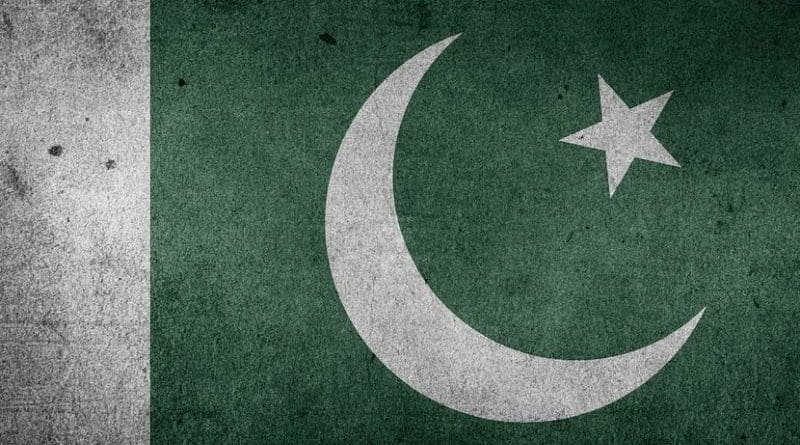The Pakistan Backlash – OpEd
By MEI
By Dr. Marvin Weinbaum and James P. Farwell
NATO Secretary-General Anders Fogh Rasmussen termed the NATO air strike that caused the deaths of 24 Pakistani soldiers on Saturday a “tragic unintended accident.” It was also a political tragedy.
The crisis has pushed relations with the United States to the breaking point and left President Asif Ali Zardari scrambling to satisfy the mounting public anger. Perhaps most worrying, it has created a fever pitch of emotions that may overwhelm Pakistan’s ability to make rational choices in its own best interests. A prime example is the government’s announcement that it will boycott next week’s Bonn conference on Afghanistan. Until now, Islamabad has battled hard to keep from being left out of discussions over the future of its Afghan neighbor.
The current bitterness toward the United States has its roots in a litany of grievances, some more legitimate than others. Pakistanis have long argued that the United States is patronizing and treats them with contempt. They are still smarting over the U.S. refusal to supply spare parts to their armed forces during the 1965 conflict with India. The United States’ turning its back on Pakistan after the Soviet withdrawal from Afghanistan in 1989 left Pakistan to deal with more than 3 million refugees in a still unresolved war. An aid cutoff that included the United States’ refusal to sell already purchased F-16s – in an effort to pressure Pakistan to abandon its nuclear arms program – embittered many.
After 9/11 Pakistan felt that the United States drew it into an American war that it wished to avoid. While taking out key al-Qaida leaders, drone attacks have enraged Pakistanis, who feel the United States has repeatedly violated its sovereignty and cares too little about Pakistani civilian casualties. The 2011 controversy over CIA agent Raymond Davis and the Osama bin Laden raid sent matters to the boiling point. Pakistan’s military thinks American unilateral actions were an affront to their honor, embarrassing them before the Pakistani people. Do not expect them to let that grievance pass.
Not accidentally, cricket-star-turned-politician Imran Khan, who is deeply critical of the U.S. engagement in Afghanistan and the drone attacks – and, say some, is the new fair-haired boy for the ISI – is now the most popular politician in the country. His political party, with no seats in the current Parliament, is polling 20 percent of the electorate. His messages attacking a political system burdened by political patronage and corruption, and his demand that all assistance to the U.S. on Afghanistan end are widely resonating. While he may lack the political organization usually needed to win a large bloc of seats that could make him prime minister, the explosive situation in Pakistan increases his opportunities. We need to recognize the extent to which politically Khan is on message and what his growing support means for the direction of domestic politics and Pakistan’s battered relationship with the United States.
What can we do to ease tensions? There are no easy answers. The White House has expressed regret and ordered an investigation of Saturday’s attack. But many Pakistanis expect an outright apology. Pakistan desires but is not going to receive a nuclear agreement similar to that accorded India.
What the United States can and should explore is finding real ways to strengthen Pakistan not through new handouts but expanded trade. Pakistanis would like a free trade agreement. As they see it, if nations like Bolivia and Peru can secure one, why shouldn’t Pakistan? Whether that or some other alternative proves most viable, the important thing is to identify economic tools and free-market opportunities that help both countries. Pakistan needs strong economic ties if it is to solve its deepening economic crisis. While not a quick solution, trade expansion marks the way forward to a more stable, long-term relationship.
Pakistan is politically fragile. Whatever Americans think about Pakistan, it has 180 million people and a hundred nuclear warheads. We must continue to engage.
In 2001-2002 India and Pakistan embroiled themselves in a new conflict that potentially might have escalated into a nuclear exchange. Our State Department merits much credit for helping avert that catastrophe. What is clear is that a passive U.S. policy or retreat, as in an aid cutoff, is likely to produce more chaos and instability – a gift to Pakistan’s extremists. Simply waiting for the dust to settle over the latest incident is self-defeating. We need to recognize the realities of Pakistani politics. We enjoy a limited but real ability to ease tensions, contribute to its stability, and strengthen an elected civilian government. We need to act soon, and the president, together with the Congress, is going to have to take some critical first steps.
Marvin Weinbaum is a scholar in residence at the Middle East Institute, the Director of the Middle East Institute Center for Pakistan Studies, and a former intelligence analyst in the U.S. Department of State. James P. Farwell is the author of “The Pakistan Cauldron: Conspiracy, Assassination & Instability.”
Assertions and opinions in this Commentary are solely those of the above-mentioned author(s) and do not necessarily reflect the views of the Middle East Institute, which expressly does not take positions on Middle East policy. This Commentary was first published as an op-ed on McClatchyDC.com on December 2, 2011 and is reprinted with permission.

